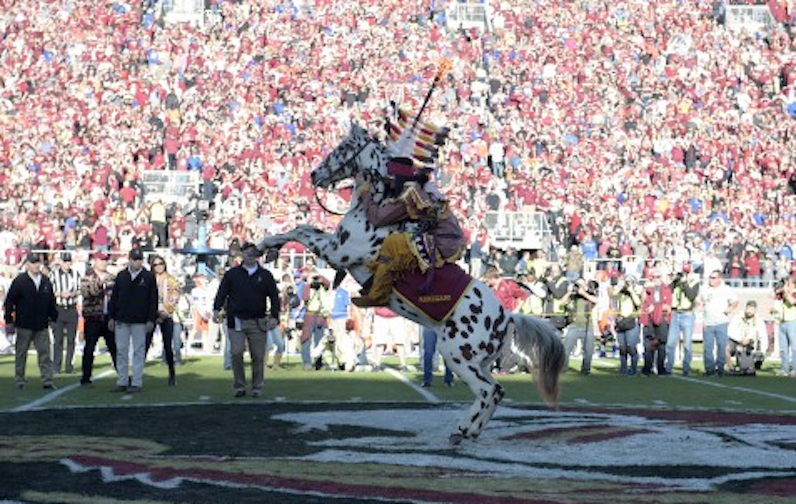Florida State football fans have no problem seeing the word “champions” associated with the university they love. In fact, it’s far from uncommon.
Since 1992, FSU has carried the title of “ACC champions” 15 times and “national champions” three times. However, one “champions” reference associated with Florida State hasn’t necessarily drawn smiles in “unanimity”.
That’s the “Champions Club”.
Added prior to the 2016 season, the Champions Club was a way to bring a luxury experience to fans and, probably more importantly, boosters. The premium package offers an indoor experience where high-paying customers can experience cool air conditioning and cold beverages while still being able to make small talk with the person next to them without the buzz of 75,000-plus screaming fans during a game.
The Champions Club also offers stadium seats high up in one corner of the end zone for those who might want to move from the air conditioner to a more traditional experience with shading over top. The only problem with those seats last year was that they were overwhelmingly empty.
According to a story from the Tallahassee Democrat, FSU athletic director Stan Wilcox said that, in some ways, the club was a success. People who purchased club access indoors seemed to enjoy the experience, he said.
The prospect of the outdoor seating in the Champions Club being empty far more often than full isn’t surprising. Three of Florida State’s first four home games last year came during the day; it’s obvious that well-to-do fans would prefer the air conditioner to the September and early October heat.
For Florida State moving forward, the athletic department is in a bit of a catch 22. After premiering the new luxury suites, many wouldn’t be happy going back to the hard bleacher surface; they also wouldn’t want to sit high up in a box seat. If there’s one demographic that you have to make happy, it’s the boosters.
On the other hand, having empty seats is an eye sore, and renovating that space has created a lower capacity. Whereas Doak Campbell Stadium used to hold about 83,000, it is now less than 79,000.
From the university’s perspective, the first year was a mixed bag that will likely prompt changes. FSU, however, will probably be quite careful in implementing those changes as a way not to upset satisfied Champions Club members while maximizing stadium capacity. It wouldn’t be shocking to see other high-profile programs start to follow suit.
They now have Florida State as a blueprint for what to do and what not to do.

















